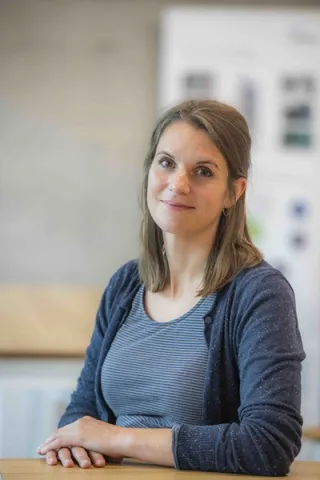Project overview
LATENT brings together academic (UoS) and industrial partners (Igloo Works, Nquiringminds) to create a research team specialising in household energy behaviour, statistically rigorous field trials, distributed electricity supply, residential energy systems, data analytics, Internet of Things (IoT) and commercial scale household energy supply. Together, they will address the fundamental user behaviour, technical thermal response and business environment challenges of delivering decarbonised heat electricity through seamless third party control of electrified residential heating.
LATENT offers a pathway to a low risk, low cost study of thermal preference and acceptance of automated, direct (3rd party) control of residential heating systems for grid support.
LATENT is a 5 workpackage, 48 month longitudinal study developed to answer the following research questions:
1. Which areas (demographic and location) will decarbonise heating via a switch to heat pumps or hybrid heat pumps?
2. What impact will the switch to heat pumps have on local electricity demand and how does this coincide with distribution network stresses?
3. How do the thermal properties of a dwelling influence the potential duration of heat deferral?
4. What density of participating households would be required to achieve useful demand reduction in areas experiencing distribution network stresses?
5. How does the deferrable capacity vary according to customer characteristics and circumstances?
6. To what extent do customer personality traits (OCEAN±, Openness, Conscientiousness, Extraversion, Agreeableness, Neuroticism) affect the potential for deferral of heat loads? How do customer traits influence the messaging and intervention strategies that can be applied?
7. What is the financial and contractual mechanism that could be created between the DNO, electricity supplier and householder to make this happen seamlessly?
8. How do householders understand energy as a service as opposed to pay as you use models?
9. To what extent are domestic customers comfortable with the deferral of space heating? How does acceptance of heat disruption vary with customer trait and financial reward level?
LATENT offers a pathway to a low risk, low cost study of thermal preference and acceptance of automated, direct (3rd party) control of residential heating systems for grid support.
LATENT is a 5 workpackage, 48 month longitudinal study developed to answer the following research questions:
1. Which areas (demographic and location) will decarbonise heating via a switch to heat pumps or hybrid heat pumps?
2. What impact will the switch to heat pumps have on local electricity demand and how does this coincide with distribution network stresses?
3. How do the thermal properties of a dwelling influence the potential duration of heat deferral?
4. What density of participating households would be required to achieve useful demand reduction in areas experiencing distribution network stresses?
5. How does the deferrable capacity vary according to customer characteristics and circumstances?
6. To what extent do customer personality traits (OCEAN±, Openness, Conscientiousness, Extraversion, Agreeableness, Neuroticism) affect the potential for deferral of heat loads? How do customer traits influence the messaging and intervention strategies that can be applied?
7. What is the financial and contractual mechanism that could be created between the DNO, electricity supplier and householder to make this happen seamlessly?
8. How do householders understand energy as a service as opposed to pay as you use models?
9. To what extent are domestic customers comfortable with the deferral of space heating? How does acceptance of heat disruption vary with customer trait and financial reward level?
Staff
Lead researchers
Other researchers
Collaborating research institutes, centres and groups
Research outputs
Marcel Schweiker, Dimitris Potoglou, Farah AlAtrash, Eleni Ampatzi, Maíra André, Elie Azar, Karol Bandurski, Leonidas Bourikas, Carolina Buonocore, Bin Cao, Giorgia Chinazzo, Rania Christoforou, Sarah Crosby, Renata De Vecchi, Edyta Dudkiewicz, Ricardo Forgiarini Rupp, Stephanie Gauthier, Natalia Giraldo Vasquez, Runa T. Hellwig, Gesche M. Huebner, Marta Laska, Marín Restrepo Laura, Isabel Mino-Rodriguez, Mohamed M. Ouf, Romina Rissetto, Philip Turner & Yijia Wang,
2025, Building and Environment, 287(Pt. B)
Type: article
P.A.D. Turner, T.W. Rushby, M. Manfren, Patrick James, S. Gauthier, A.S. Bahaj, T. Sweetnam, S. Kim & Ellis Ridett,
2025, Applied Energy - Elsevier, 389
Type: article
Patrick James, Philip Turner, Stephanie Gauthier, Massimiliano Manfren, Ellis Ridett, Gregory Peter Sewell & Abubakr Bahaj,
2024
Type: conference
Gregory Sewell, Stephanie Gauthier, Patrick James & Sebastian Stein,
2024, Energies, 17(18)
DOI: 10.3390/en17184753
Type: article
Philip Turner, Tom Rushby, Patrick James, Stephanie Gauthier, Massimiliano Manfren & Abubakr Bahaj,
2023
Type: conference
Stephanie Gauthier & Philip Turner,
2023
Type: creativeMediaAndArtefact
Berth Phileinta Ginting, Stephanie Gauthier, Fergus Nicol, Luisa Brotas, Rosa Schiano-Phan, Nichaphat Sukontason & Philip Turner,
2022
DOI: 10.5258/SOTON/P1087
Type: conference

